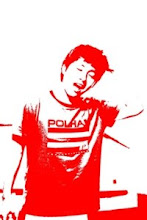3.1
There is a saying that when a rat is on the corner, then the rat will bite and fight against the cat. The challenge and response by Arnold J. Toynbee is actually similar with the idea of rat responding to the challenge of cat by biting the cat. Penalization of a superior country is a challenge to the country under it.
Japanese occupation of Korea (1910~1945) was a great challenge to Koreans. Japanese was very cruel to Koreans. The history tells us that Japanese banned Koreans to speak Korean and they also changed the name of Koreans into Japanese. The reason that I say this is cruel is because Koreans were heavily affected by Confucianism beliefs. Changing of names into Japanese was an unimaginable disgrace to the ancestors.
In times of immense penalization and pressure from the Japanese, Koreans responded by Three-one movement or March first movement.
“The March First Movement, or Samil Movement, was one of the earliest displays of Korean independence movements during the Japanese occupation of Korea.” (wikipedia)
On the center of this movement was a creative individual who’s name is “Yu kwan soon.” Born in March 15 1904, she was only 15 when she stood firm in the midst of this massive demonstration. Being educated in Ehwa School which was established by Methodist missionaries in Korea, she had deep faith in God and believed that Korea should gain independence over the suppression of Japanese.
March First movement started at 2 P.M. on March 1, 1919. Korean nationalists waving Korean flags shouted/proclaimed the independence of Korea. The leaders of this movement sent a document of independence to Japanese Governor General.
“We herewith proclaim the independence of Korea and the liberty of the Korean people. We tell it to the world in witness of the equality of all nations and we pass it on to our posterity as their inherent right.
We make this proclamation, having back of us 5,000 year of history, and 20,000,000 of a united loyal people. We take this step to insure to our children for all time to come, personal liberty in accord with the awakening consciousness of this new era. This is the clear leading of God, the moving principle of the present age, the whole human race's just claim. It is something that cannot be stamped out, or stifled, or gagged, or suppressed by any means.” (wikipedia)
These were the words that were sent to Japanese Governor General and guess what happened next. Japanese police started to open fire at the civilians who were involved in the movement. 7,000 killed and 46,303 were arrested. Yu kwan soon was one of the 46 thousand that got arrested.
“She was tried and sentenced to seven years of imprisonment at Seodaemun Prison. She continued to protest for the independence of Korea, for which she received harsh beatings and torture. She didn’t submit to Japanese authority and after receiving torture she died in prison on October 12, 1920. Her last words were “Japan shall fall.”
The Japanese prison initially refused to release her body, but eventually and reluctantly the prison released her body to Fry and Walter, principals of Ehwa Women School and only after Fry and Walter threatened to expose this atrocity to the world.
Her body was reported to have been cut into pieces. The dismembered body was contained inside the oil crate which was supposed to be returned to Saucony Vacuum Company. The Japanese Authorities did so as retaliation against the threat from Ehwa School. She was given a national burial in 1962.” (wikipedia)
Even though the response to the penalization ended up with the death of a charismatic leader, this 15 years old girl was creative enough to bring the revolt into action. Nowadays, March 1 is the national holiday of Korea. In this day we remember the courage and patriotism of Yu kwan soon and other nationalists who fought for the independence of Korea.
March 1st Movement. Retrieved on Sept. 13, 2008
Retrieved from http://en.wikipedia.org/wiki/March_1st_Movement
Toynbee, A. J. (1935-1948). A study of history (Vol. 1). London: Oxford University
Yu Gwansun. Retrieved on Sept. 13, 2008
Retrieved from http://en.wikipedia.org/wiki/Yu_Gwan-sun
Oct 22, 2008
Subscribe to:
Post Comments (Atom)

No comments:
Post a Comment